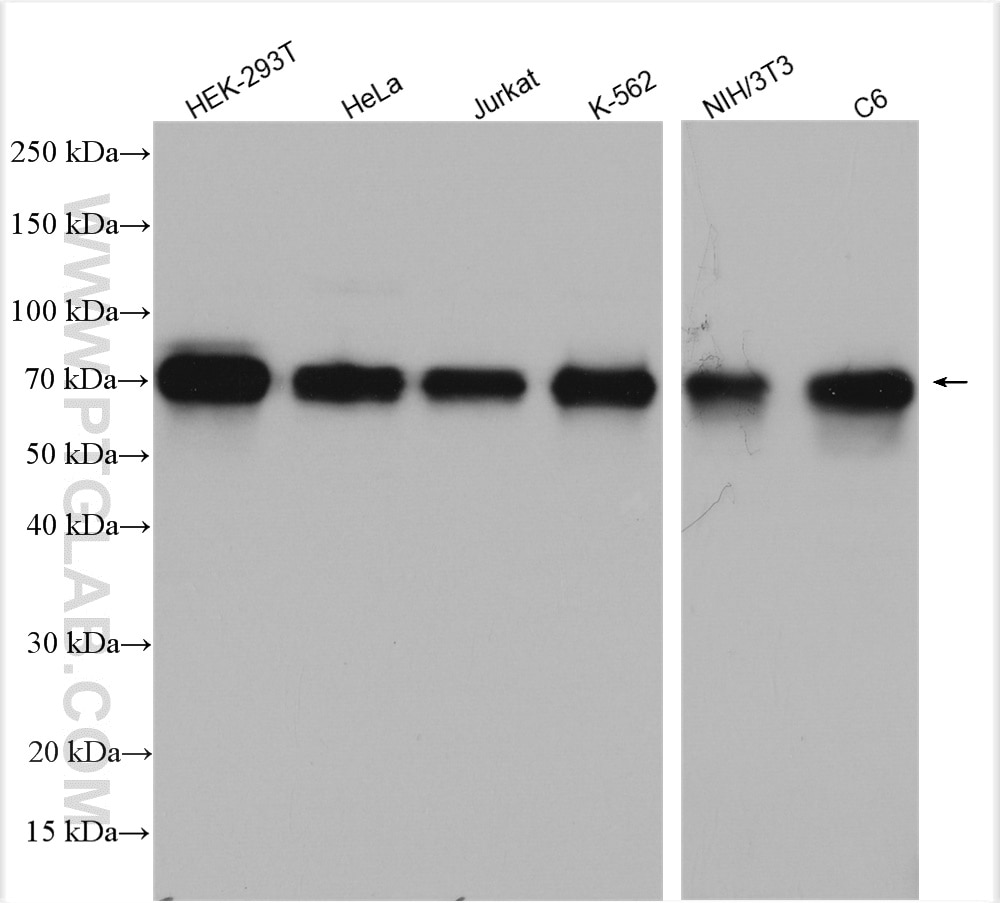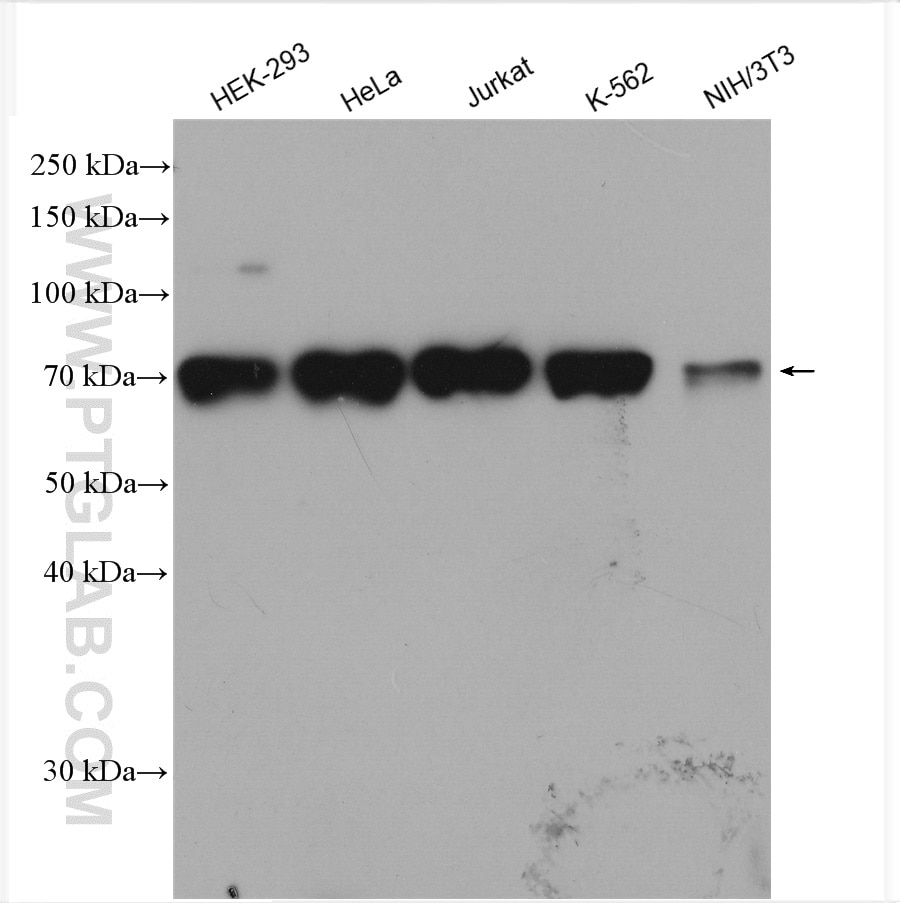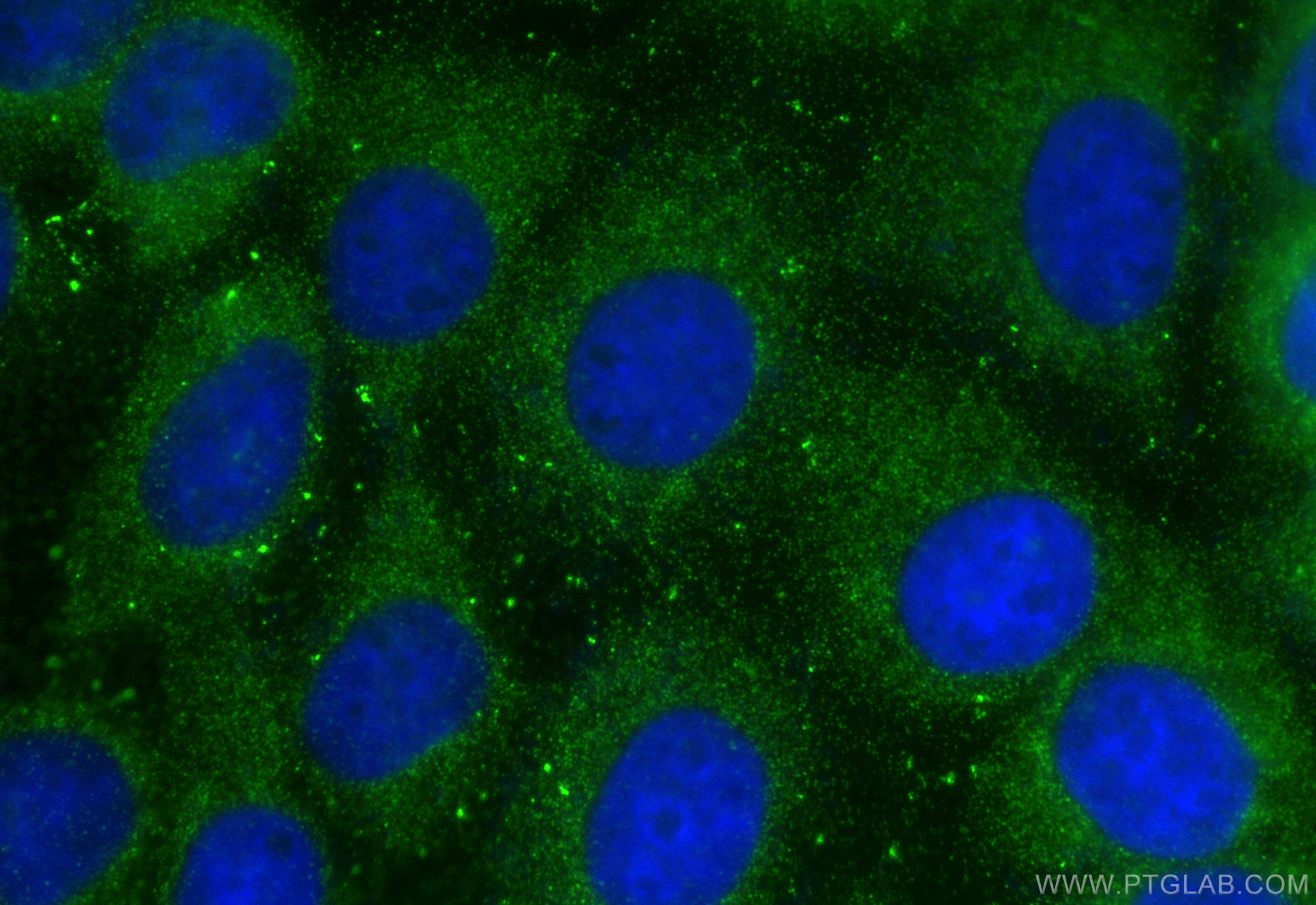Anticorps Polyclonal de lapin anti-OTUD5
OTUD5 Polyclonal Antibody for WB, IF/ICC, ELISA
Hôte / Isotype
Lapin / IgG
Réactivité testée
Humain, rat, souris
Applications
WB, IF/ICC, IP, CoIP, ELISA
Conjugaison
Non conjugué
N° de cat : 21002-1-AP
Synonymes
Galerie de données de validation
Applications testées
| Résultats positifs en WB | cellules HEK-293T, cellules C6, cellules HEK-293, cellules HeLa, cellules Jurkat, cellules K-562, cellules NIH/3T3 |
| Résultats positifs en IF/ICC | cellules A431, |
Dilution recommandée
| Application | Dilution |
|---|---|
| Western Blot (WB) | WB : 1:500-1:3000 |
| Immunofluorescence (IF)/ICC | IF/ICC : 1:50-1:500 |
| It is recommended that this reagent should be titrated in each testing system to obtain optimal results. | |
| Sample-dependent, check data in validation data gallery | |
Applications publiées
| KD/KO | See 1 publications below |
| WB | See 8 publications below |
| IF | See 4 publications below |
| IP | See 2 publications below |
| CoIP | See 1 publications below |
Informations sur le produit
21002-1-AP cible OTUD5 dans les applications de WB, IF/ICC, IP, CoIP, ELISA et montre une réactivité avec des échantillons Humain, rat, souris
| Réactivité | Humain, rat, souris |
| Réactivité citée | Humain, souris |
| Hôte / Isotype | Lapin / IgG |
| Clonalité | Polyclonal |
| Type | Anticorps |
| Immunogène | OTUD5 Protéine recombinante Ag15190 |
| Nom complet | OTU domain containing 5 |
| Masse moléculaire calculée | 571 aa, 61 kDa |
| Poids moléculaire observé | 70-75 kDa |
| Numéro d’acquisition GenBank | BC028225 |
| Symbole du gène | OTUD5 |
| Identification du gène (NCBI) | 55593 |
| Conjugaison | Non conjugué |
| Forme | Liquide |
| Méthode de purification | Purification par affinité contre l'antigène |
| Tampon de stockage | PBS with 0.02% sodium azide and 50% glycerol |
| Conditions de stockage | Stocker à -20°C. Stable pendant un an après l'expédition. L'aliquotage n'est pas nécessaire pour le stockage à -20oC Les 20ul contiennent 0,1% de BSA. |
Informations générales
The deubiquitinating enzyme OTUD5, also known as deubiquitinating enzyme A (DUBA), is a member of the deubiquitinating enzyme OTU family. By deubiquitinating other proteins, OTUD5 is an important regulator of several physiological processes, such as immune signaling and DNA damage responses. The dysregulation of these processes can increase the risk of associated diseases, including inflammation, cancer and genetic disorders.
Protocole
| Product Specific Protocols | |
|---|---|
| WB protocol for OTUD5 antibody 21002-1-AP | Download protocol |
| IF protocol for OTUD5 antibody 21002-1-AP | Download protocol |
| Standard Protocols | |
|---|---|
| Click here to view our Standard Protocols |
Publications
| Species | Application | Title |
|---|---|---|
Nat Commun OTUD5 promotes end-joining of deprotected telomeres by promoting ATM-dependent phosphorylation of KAP1S824 | ||
Adv Sci (Weinh) OTUD5 Protects Dopaminergic Neurons by Promoting the Degradation of α-Synuclein in Parkinson's Disease Model | ||
Clin Transl Med p53 inhibits OTUD5 transcription to promote GPX4 degradation and induce ferroptosis in gastric cancer
| ||
Int J Radiat Oncol Biol Phys USP11 exacerbates radiation induced pneumonitis by activating endothelial cell inflammatory response via OTUD5-STING signaling | ||
Carcinogenesis CacyBP promotes the development of lung adenocarcinoma by regulating OTUD5 | ||
Nat Commun Podocyte OTUD5 alleviates diabetic kidney disease through deubiquitinating TAK1 and reducing podocyte inflammation and injury |




